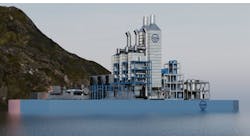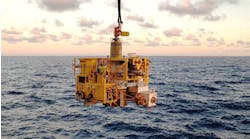Opinion: Oil and gas/vessel marine casualty regulatory enforcement is changing
By Douglas Martin, OPA90 Forum
Presently, uncertainty exists about how federal authorities will exercise their enforcement powers over oil and gas/vessel casualties, and oil spill response operations.
This uncertainty centers on how these agencies such as the US Coast Guard, the Bureau of Safety and Environmental Enforcement, and the Department of Justice (DOJ) will interpret risk, causation, culpability and evaluate extent of environmental damages. How might enforcement shift under an administration perceived to favor deregulation and economic growth over tighter environmental oversight and legal action?
The Oil Pollution Act of 1990 (OPA90) is proven legislation that prevents and mitigates environmental damages. With the current administration’s approach, the emphasis on enforcement may be more lenient.
Responsible operators will continue to take preventive measures and mount a thorough response when a significant risk of pollution exists. These actions will likely prove invaluable in reducing liabilities from potential future claims, even if they are not pursued by the current administration. Response to each casualty utilizing the self-explanatory principal “prudent over response” will protect life, the environment and property. This is best achieved by activating vessel or facility response plans proactively.
The DOJ and other agencies remain committed to upholding the law, and any reckless or grossly negligent behavior that leads to environmental harm can be expected to result in the same level of scrutiny and pursuit of penalties as under any administration. However, it is probable that enforcement priority will focus on incidents demonstrating significant environmental impact or clear negligence. Companies that maintain exemplary safety, response and robust preparedness programs are more likely to find themselves facing fewer investigations, reduced frequency of civil penalties and a more cooperative compliance environment.
This potential shift in enforcement should not be interpreted as a go-ahead for lax compliance protocols. Rather, it presents an opportunity for responsible parties and responders to fortify preparedness and compliance measures without an excessive fear of immediate punishment for minor infractions or incidental releases. A strong emphasis on operational excellence, safety and "prudent over response" actions in the unfortunate event of a casualty will remain the most reliable form of protection against penalties.
Where risk or actual environmental damage has occurred from a marine casualty, responsible parties are advised to continue documenting every step of their response. This includes maintaining rigorous records of evolving risk assessments, communications with regulatory agencies and the implementation of mitigation measures. Any entity that tries to skirt its obligations or fails to respond properly will likely find that the authorities’ willingness to forego strict enforcement is not an opening to ignore OPA90’s requirements.
Continual improvements in training, inter-agency cooperation and the ability to incorporate best practices as prevention tools to limit damage will be viewed very favorably if an investigation does develop. If a company can show that it acted swiftly and responsibly—evidencing utilization of robust response plans—it may benefit from a more measured regulatory approach.
For all stakeholders, the fundamentals of OPA90 still stand: liability, pre-contracted rapid response and sound preparedness. While the offshore energy industry may be seeing less immediate or aggressive enforcement for smaller incidents, major events could still trigger significant legal and financial repercussions. Prevention, preparedness and a timely "prudent over response" posture will assist greatly in protecting both economic and environmental interests.




